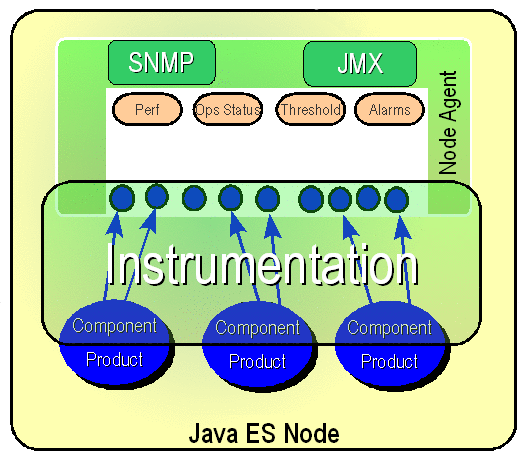Node Agents
In monitoring terminology, a node is a single logical host identified by a unique fully qualified domain name or IP address. A node can be either an entire system or a Solaris zone configured as a virtual system. The node agent communicates with all instrumented components on that host and exposes all of their monitored objects. The node agent also manages all of the logic to collect performance statistics, monitor thresholds defined in rules, and generate alarms for the monitored objects it contains.
The following diagram represents the contents of a node agent on a single host that has instances of three Java ES product components. The diagram shows how the instrumentation is instantiated in the node agent to expose values provided by the product components.
Figure 1–1 Contents of a Node Agent

The node agent is implemented as a module loaded into the Common Agent Container, which is itself a Java Virtual Machine. The implementation of the node agent is based on the Java Management Extensions (JMXTM), the standard Java extension for monitoring and remote management. Any JMX manager application that understands CMM can access the monitored objects in the node agent. Using the JMX API, the node agent can also expose certain monitored objects through the Simple Network Monitoring Protocol (SNMP).
- © 2010, Oracle Corporation and/or its affiliates
